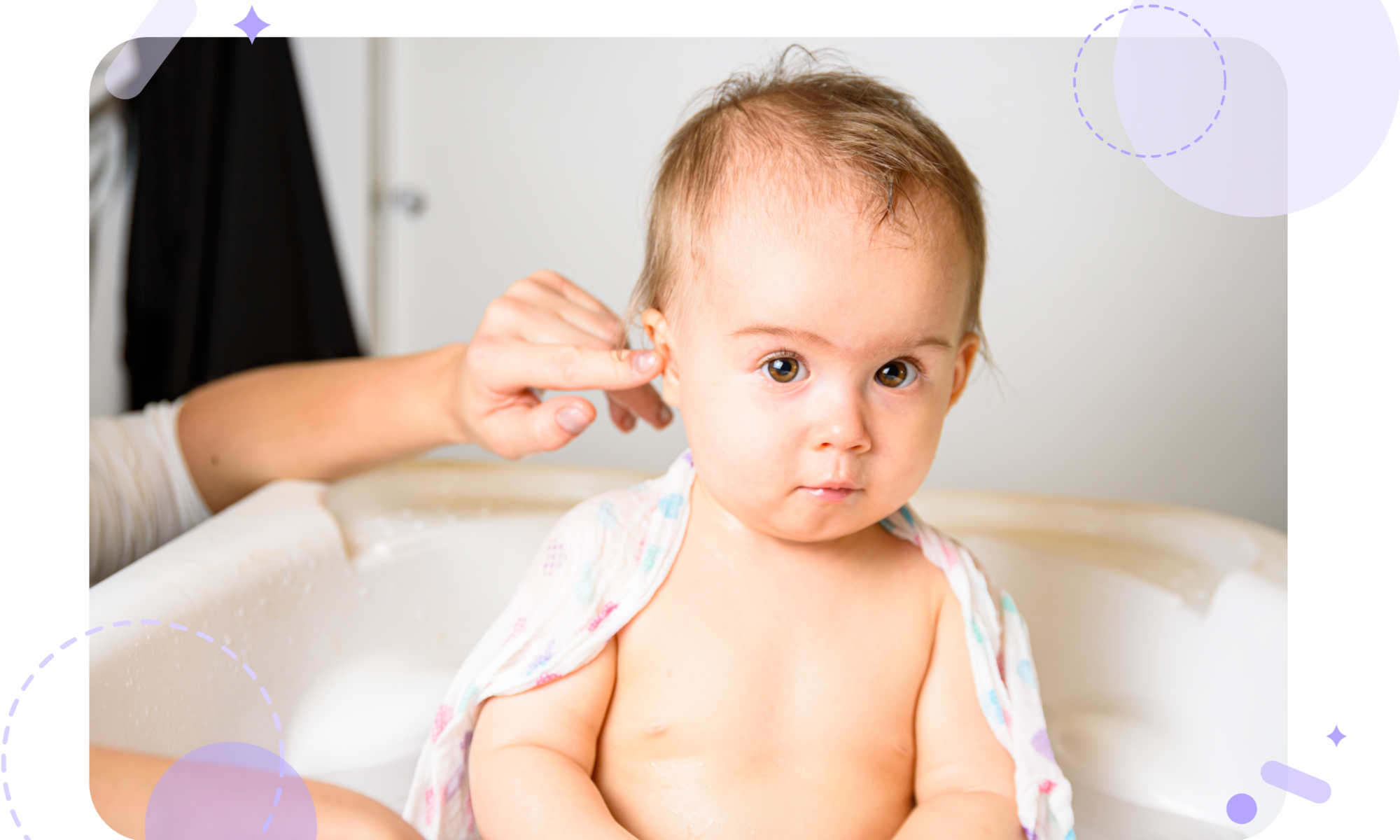
Babies can hear sounds inside the womb as early as around the 18-week mark. From birth, babies pay close attention to voices, especially familiar, high-pitched ones. When you talk to your baby or play music, your baby will understand there are sounds in their immediate environment.
A hearing test is usually a standard of care practice in most healthcare systems to ensure that your baby has the necessary physical attributes to generate the hearing signal that should travel to the brain for processing.
A health care professional will assess your newborn’s hearing early on, but you can further evaluate your little one’s hearing capabilities by monitoring their alertness to various sounds around them. For example, a loud or disturbing noise may startle the baby or wake them up from their sleep.
A startle response to loud noises like dogs barking, doors slamming, or yelling voices signifies the communication between the cochlear nerve and the parts of the brain responsible for hearing processing (the cochlear nucleus, the auditory cortex, and the prefrontal cortex).
Locating Sounds
On top of the ability to hear sounds, another important aspect of hearing assessment is your baby’s capacity to find noise locations. They don’t necessarily need to locate sound sources accurately, provided they can move their attention in the right direction.
To determine your baby’s sound localization skills, find a moment when they are alert and lying face up, and try snapping your fingers on one side of their face. After a while, your little one should direct their head toward that direction, even if only briefly, since their head control is still not fully established.
Your baby may start looking for sound sources by four months old, responsively turning their head toward the direction of noises. Typically, this occurs once they develop complete head control, enabling them to track objects visually. You can catch the first glimpses of cognitive and auditory development even in the early days between 0 to 3 months old.
These minor sound responses are indicators that the brain compartments for motion and sound are communicating as they should. As sounds start becoming integrated, your baby will become aware of their surroundings and start coordinating their visual and auditory senses in conjunction with their motor system. Thanks to your newborn’s cognitive and communication development, they will listen for sounds and start looking and identifying sound origins.
Hearing can be a critical function for brain development across many categories, from cognition, speech, and communication to language and social development. If you have any concerns about your baby’s sound alertness, be sure to consult a health professional.
 Back
Back

